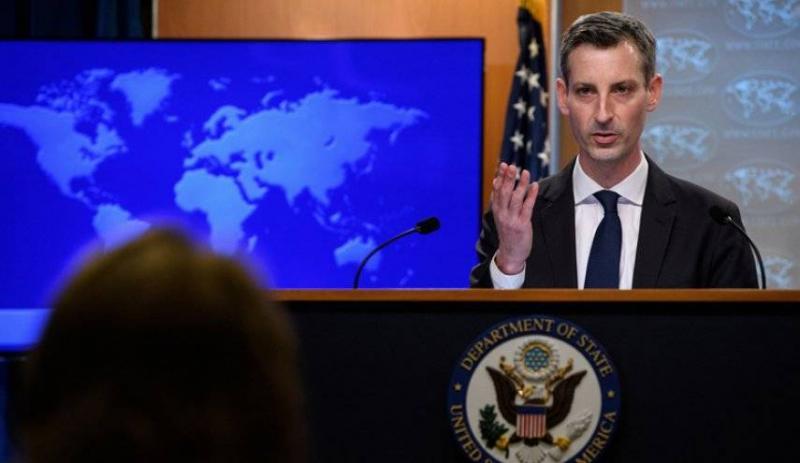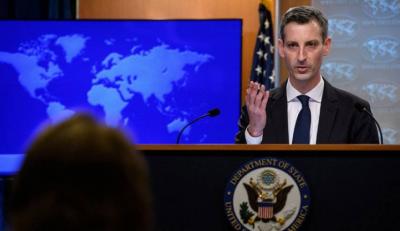U.S. State Department spokesperson Ned Price announced that Washington will continue to pressure the Houthi leadership in Yemen.
During a press conference, Price explained that the humanitarian crisis in Yemen has prompted the U.S. administration to prioritize reassessing the classification of the Houthis, emphasizing the need to maintain pressure on the movement's leadership. Price noted that the United States has ended its support for operations in Yemen, but this decision does not apply to its operations against Al-Qaeda. These statements came after Secretary of State Antony Blinken informed Congress of his intention to withdraw the terrorist designation from the Houthis. The U.S. State Department, in a statement, called on the Yemeni group "Ansar Allah" (Houthis) to immediately cease their attacks against Saudi Arabia and refrain from conducting military actions within Yemen. The statement expressed the United States' deep concern over the continuation of Houthi attacks, urging them to stop these assaults on civilian facilities in Saudi Arabia and to avoid new military actions within Yemen, which only lead to more suffering for the Yemeni people.
In related developments, the Iranian Foreign Ministry spokesperson confirmed that there is no truth to claims regarding U.N. envoy to Yemen Martin Griffiths carrying an American message to Tehran about Yemen. The Iranian spokesperson asserted that there is no offer for the U.S. to cease its support for Saudi Arabia in exchange for Iran halting its support for the Houthis. Martin Griffiths arrived in Tehran on Sunday for a two-day visit to discuss the Yemeni crisis with Iranian officials. He met on Sunday with the senior political advisor to the Iranian foreign minister, Ali Asghar Khaji, to discuss the Yemeni crisis and ways to achieve peace and halt the war. On Monday, U.N. envoy Martin Griffiths discussed the developments of the Yemeni crisis with Iranian Foreign Minister Mohammad Javad Zarif.
This visit comes on the heels of statements from Yemeni Prime Minister Maeen Abdulmalek, who emphasized that there can be no peace with the Houthis without international pressure on Iran, during his meeting with European ambassadors. Recently, the U.N. envoy held meetings with Yemeni President Abdrabbuh Mansur Hadi, Abdulmalek, and Saudi Deputy Minister of Defense Khalid bin Salman. Yemen has been embroiled in war for more than six years, resulting in the deaths of 233,000 people, and 80% of the population, around 30 million people, relies on aid and assistance, according to the United Nations, making it the worst humanitarian crisis in the world.




